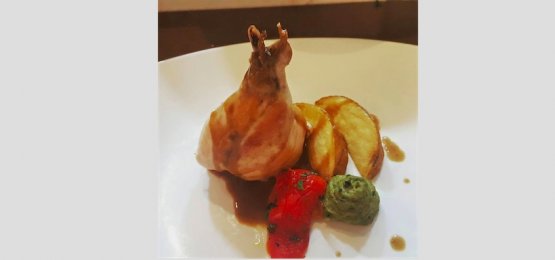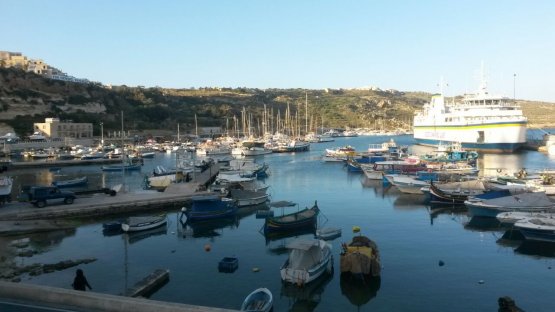We’ve already abundantly spoken about the importance of following models such as that given by the Nosco school in Ragusa Ibla: in a country that has no masters, finding some authentic points of reference is essential for young people who, rather than learning a profession, almost always try to imitate it and play by the tune. Having taken off his apron some time ago (yet certainly not completely: restaurant La Fattoria delle Torri in Modica still bears his resounding signature), chef Peppe Barone has invested everything in the project of his Scuola Mediterranea di Enogastronomia and results are arriving.
Last week, invited to give a lesson to some very curious students from the fourth cycle (9 experienced cooks of which 8 from Sicily and 1 from Tuscany) on the history of gastronomy and on all that has to do with the Identità Golose universe, we asked them in detail about an important project: everyone at the Nosco school was called by the government of Malta to enhance the agriculture of Gozo, a charming island – the second largest in the archipelago – belonging to the once British colony. Symbolically, this represents an important acknowledgement for Peppe Barone, who was asked to teach not just Italian students but also the producers and restaurateurs of another country.

Rabbit with chocolate, prepared by the students from the Nosco school, at work in Gozo
«Incentivise agricultural logics in Gozo was not an easy task», said
Barone, «the inclination to rural life is traditionally profound but the water issue remains: it rarely rains and desalting machines are often not enough. What makes me particularly happy about this project is the renewed inclination by island people to enhance autochthonous cultivations, something unusual for them. They do have interesting products, one just needs to understand how to farm them and use them in the kitchen».
An example? «Their potatoes are delicious and unusual: it takes lots of time to cook them but they have a pleasing taste. They also have interesting light green, small courgettes. Like in many island cuisines – think of Ischia or Pantelleria – the people from Gozo adore rabbit: this is why in the menus of the two dinners organised with our guys we decided to cook Rabbit with chocolate, a traditional recipe from Sicily, once only prepared with hare. It was only prepared during hunting season, in the autumn and winter: I found about it through my father-in-law, who comes from a family of hunters. The people from Malta appreciated it».

The little port of Gozo, a beautiful island 4 km north-west of Malta, 30K inhabitants
Not just potatoes and rabbit: «We also created our version of
Rooster crest with pork because pork is very popular in Malta and the surroundings. They have always eaten it since the morning, in the form of prosciutto and cured meats, clearly a British habit. We had them taste our Sicilian recipes too: bread and
panelle, almond cakes,
arancini…». All this with a commendable goal: «Convincing them that a project focusing on agricultural culture is a good one. Farmers can become the real protagonists with regards to land and food, discouraging the increased imports: 90% of the food must be sourced from what is farmed around you». The experience in Gozo «was essential because it will be very memorable for our students. And memory is crucial». We agree.